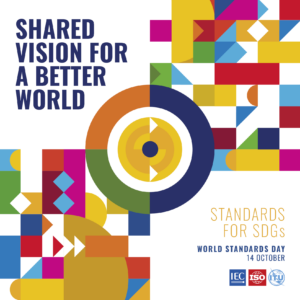Getting to know standards – World Standards Day 2023
To mark World Standards Day 2023, we are offering a closer look at three standards to demonstrate how ECOS maximises their potential to address environmental issues.
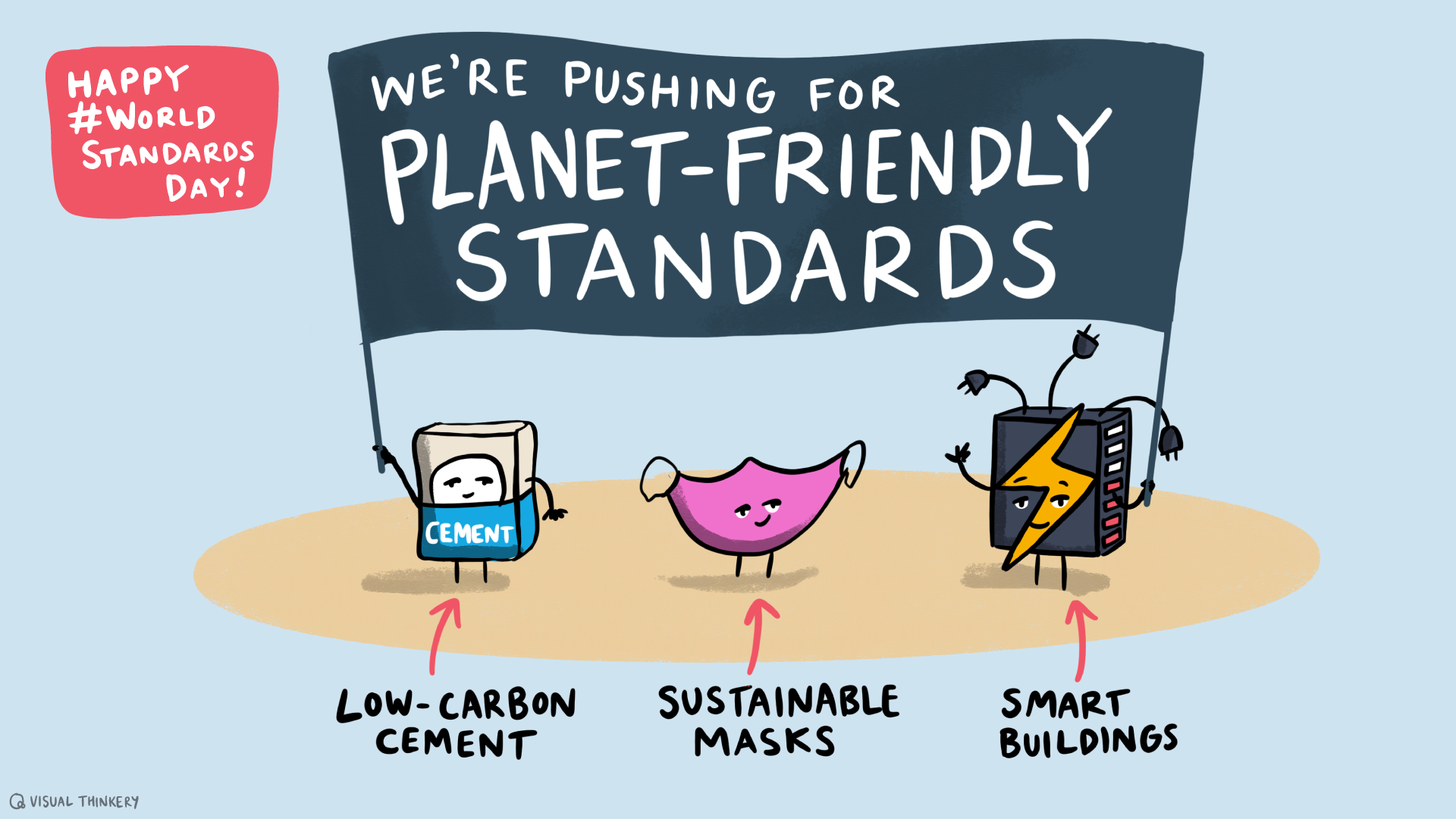
The green line to standards
Not everyone is aware of standards, but they affect all of us in our daily lives. Standards represent a set of agreed rules, which govern, for example, how products are made or measure their performance.
As the only international environmental NGO working on standards, we ensure the environmental voice is heard when they are developed and support the stronger presence of underrepresented stakeholders in standards making. When we get standards right, they offer a significant opportunity to reduce our environmental impact and make sustainability and circularity the norm in our products and services.
From solar energy systems to energy efficiency, from plastics to measuring circular economy, and from biodiversity to climate change, we are actively developing international and European standards and bringing the voice of environmental expertise to strengthen their quality.
What is World Standards Day?
A shared vision for a better world
World Standards Day, 14 October, celebrates the work of experts worldwide who develop voluntary standards and technical agreements. ECOS works closely with standardisers to ensure that the environmental voice is heard, diverse actors are represented and that standards are used appropriately. We proudly represent the environmental voice in the discussions within ISO, IEC, CEN, CENELEC, ETSI and most recently ITU.
For more than two decades, our international network of members and experts has advocated for environmentally ambitious standards – essential to make a real difference in the transition to an environmentally sustainable world.
In celebration of World Standards Day, we are taking a closer look at three of the many standards we are currently working on, and the potential they hold to tackle a wide variety of environmental issues, including fostering the uptake of low-carbon cement, managing our electricity grids and making face masks safely reusable.
EN 50491-12-2 Going international – Optimising renewable energy use and reducing consumer costs
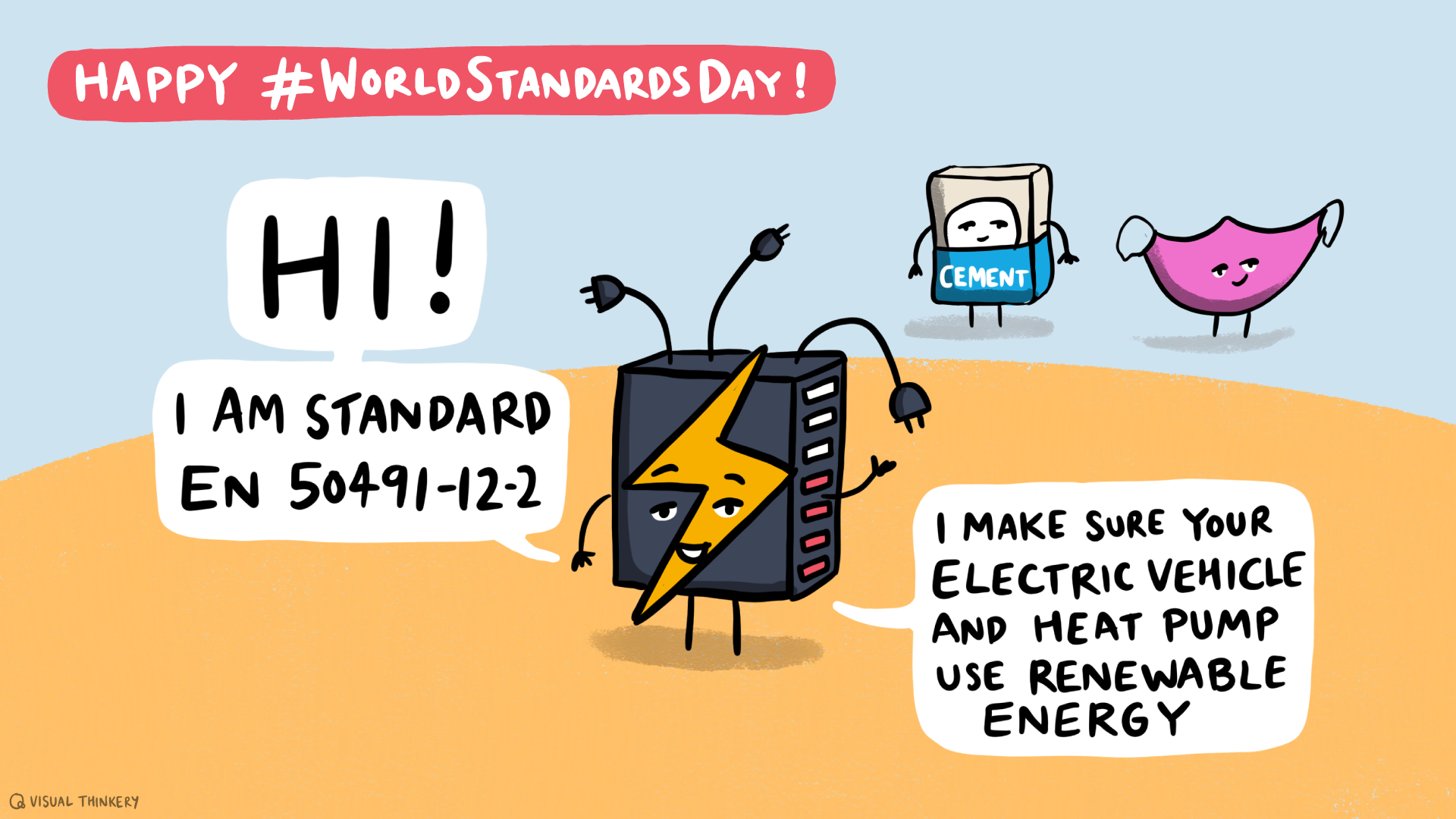
We need to move to renewable energy sources. However, the availability of renewable energy naturally varies – there is more solar power when the sun is shining on solar panels, and wind turbines require wind. This natural variation can pose a challenge – but a smart electricity grid maximises the use of renewable energy and makes the most of available grid capacity as we transition away from fossil fuels.
Standard EN 50491-12-2 helps to reduce power demand (and consumer costs!) at peak times by managing power flows inside buildings, including exchanges with electric vehicle charging stations and household appliances, such as electric heat pumps. Signals from the electricity grid and our own user preferences can allow us to choose when we consume the most energy.
We need a smart, flexible electricity grid that can cope when we all arrive home after work and plug in our electric cars or turn on our heating on the first cold day of the year. Enter standard EN 50491-12-2, thanks to which our electric vehicles and appliances can help to stabilise the grid, instead of overloading it, and at the same time optimise our use of renewable energy.
This standard has been so successful at the European level that it is now being discussed at the global level by the IEC (International Electrotechnical Commission), with the goal of making smart grids a reality for even more people.
EN 197-1 – Tackling cement and concrete’s massive emissions problem
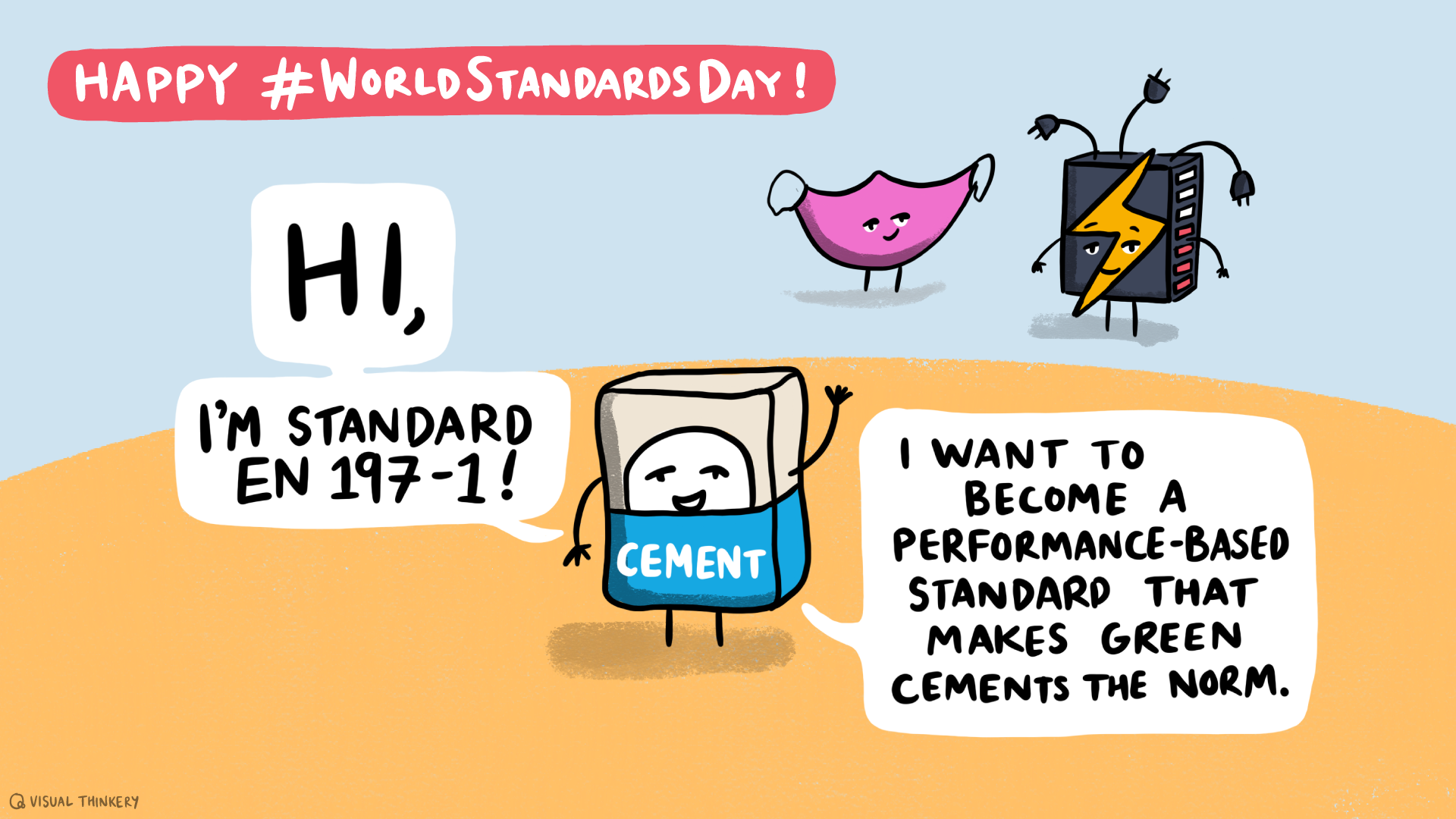
Cement and concrete production accounts for 8% of global CO2 emissions – a staggering amount when you consider that low- and zero-carbon alternatives already exist, which are both scalable and cost-effective. To make these alternatives the norm, we need a major update of cement and concrete production standards – including the European standard EN 197-1.
Despite new research and innovations, standards are still primarily tailored to the production of traditional Portland cement. These standards were created when decarbonisation was not yet a fundamental objective; they are recipe-based and restrict us to high-carbon cement and concrete.
We need to decarbonise the sector – urgently. This is why ECOS is working to make standard EN 197-1 better for people and the planet. By shifting to a performance-based approach, we can open cement and concrete production to use more sustainable materials and make cement greener!
CEN/TC 205/WG 17 – Transforming facemasks for reuse
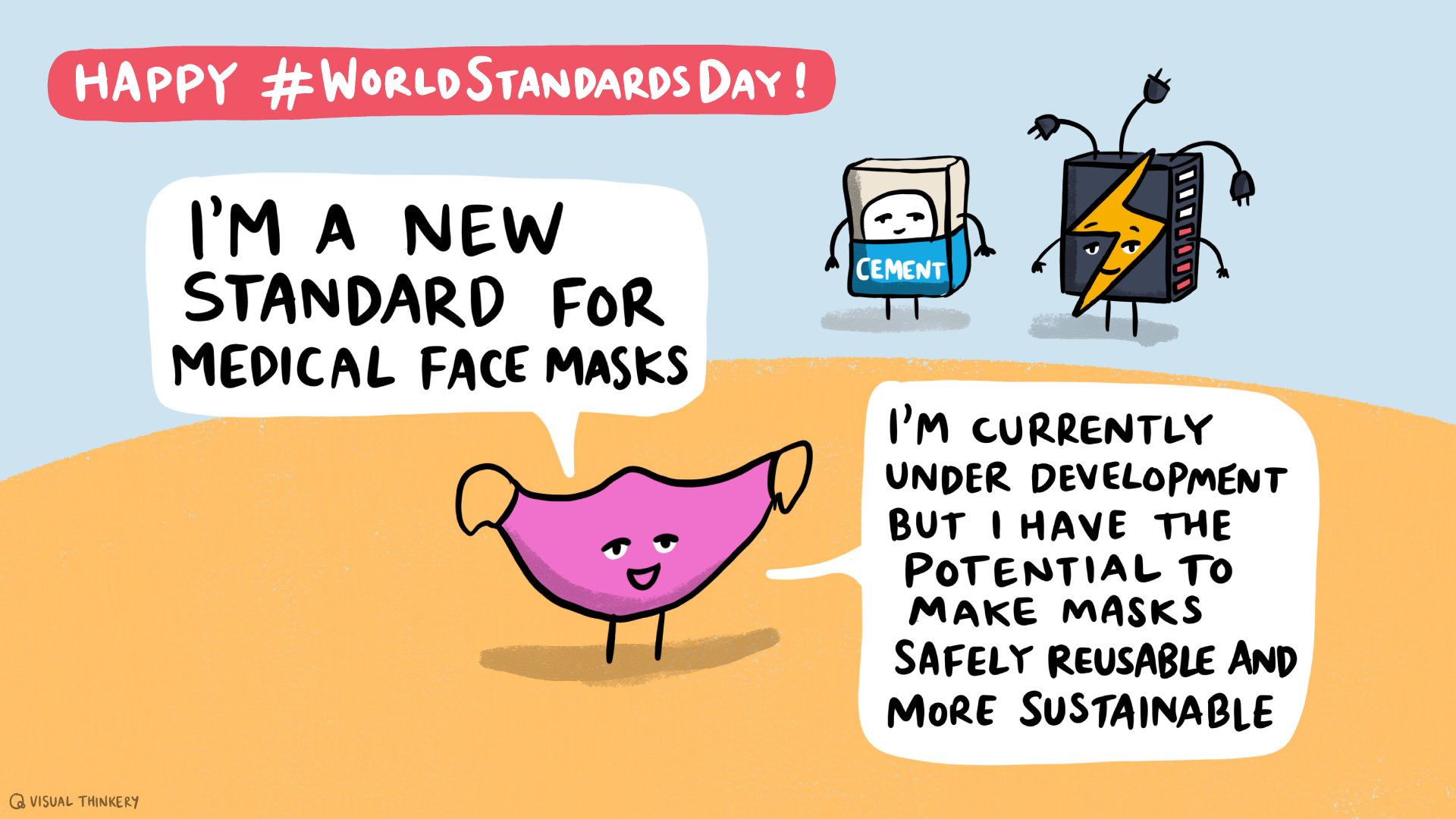
A new facemask standard is under development – this is an important opportunity to make reusable masks the norm. CEN/TC 205/WG17 is working on a new standard for infection protection masks – a critical piece of personal protective equipment (PPE) used against the spread of infection. Many of us witnessed during the COVID-19 pandemic how PPE can become an everyday item, indispensable in our fight against spreading viruses – but the other side of the coin is the resulting mountain of waste from disposable, single-use masks. An unprecedented new waste stream that we are still trying to address.
Many single-use plastic products are being successfully replaced with reusable alternatives, but face masks have not yet been properly considered for reuse. Including reuse options in the CEN/TC 205/WG17 standard could help mainstream reusable masks.
By using standardisation to address the environmental and health impacts of this new pollution stream, we can reduce the volume of unnecessary single-use PPE without compromising their safety and conformity. The safe reuse of face masks represents a huge potential to reduce tonnes of waste and is a great example of how standards can meet global challenges and tackle new problems.
Follow ECOS on LinkedIn to share our cartoons and learn more about our international work on standards.

 By
By 